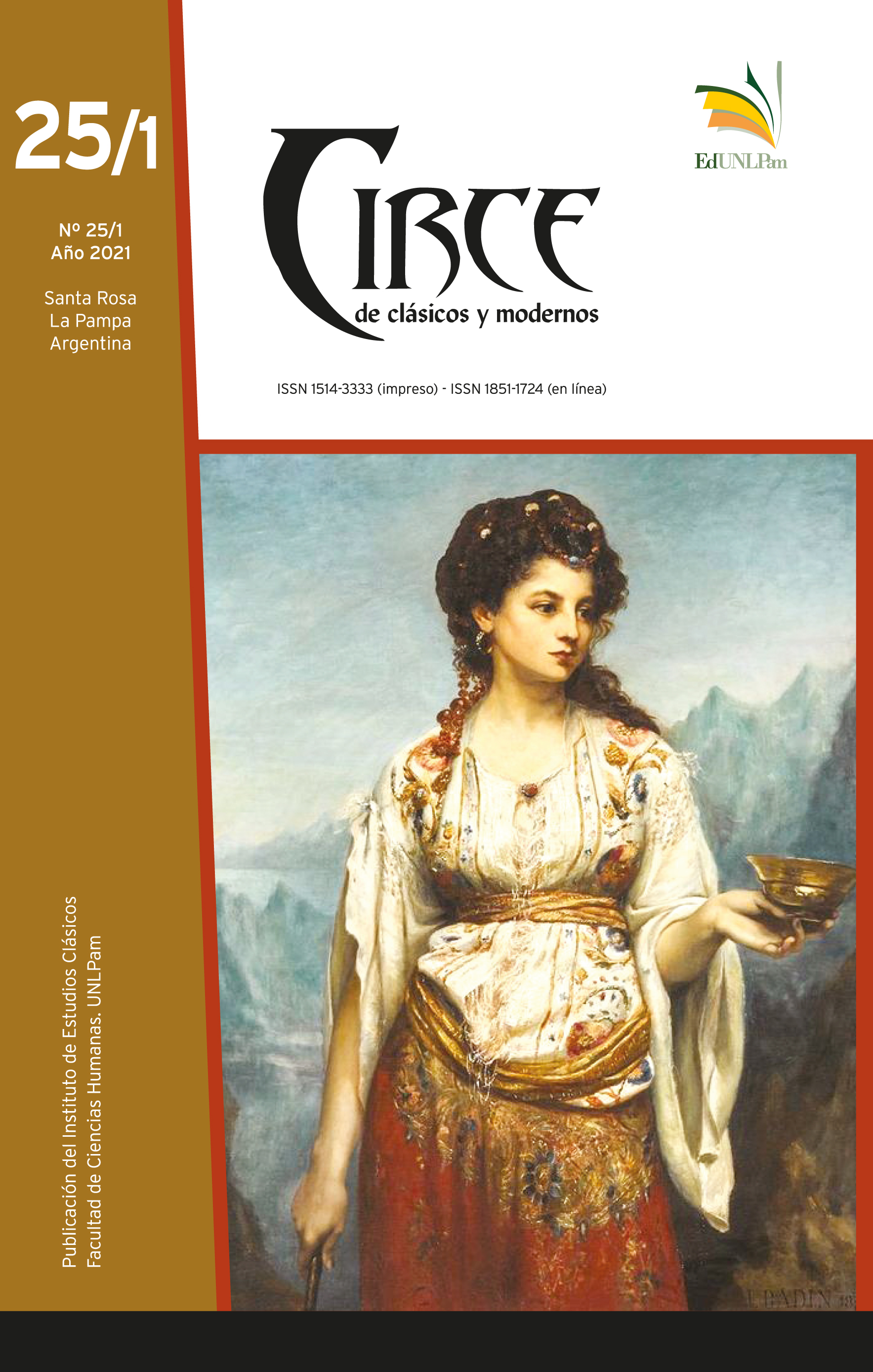Libido and luxuria in Seneca’s Tragedy
Keywords:
libido, luxus, Phaedra, Thyestes, SenecaAbstract
In this article we look into two tragedies in which the concepts of libido and luxus play an important role within the tragic representation: Phaedra and Thyestes show on stage two different representations of luxury, each driven by a particular kind of libido, which may seem to go along the usual admonitory and moral representation of Seneca’s time. But these tragedies go a little bit further, because by presenting rhetorically on stage the paupertas and also a return to a Natural state, they actually deconstruct the idea of Nature by presenting it as an artifice.
Downloads
Downloads
Published
Issue
Section
License
Los autores que tengan publicaciones con esta revista, aceptan los términos siguientes referidos a los derechos de autor/a:
1. Los autores/as conservarán sus derechos de autor y garantizarán a la revista el derecho de primera publicación de su obra, el cuál estará simultáneamente sujeto a la Licencia de reconocimiento de Licencia Creative Commons Atribución-NoComercial-CompartirIgual 4.0 Internacional (http://creativecommons.org/licenses/by-nc-sa/4.0/). que permite a terceros compartir la obra siempre que se indique su autor y su primera publicación esta revista. El autor es el titular del copyright.
2. Los autores/as podrán adoptar otros acuerdos de licencia no exclusiva de distribución de la versión de la obra publicada (postprint) siempre que se indique la publicación inicial en esta revista. La cesión de derechos no exclusivos implica también la autorización por parte de los autores para que el trabajo sea depositado en el repositorio institucional y difundido a través de las bases de datos que el editor considere adecuadas para su indización, con miras a incrementar la visibilidad de la publicación y de sus autores.
3. Se permite y recomienda a los autores/as difundir su obra a través de Internet antes y durante el proceso de envío, lo cual puede producir intercambios interesantes y aumentar las citas de la obra publicada.







.jpg)









2.png)



